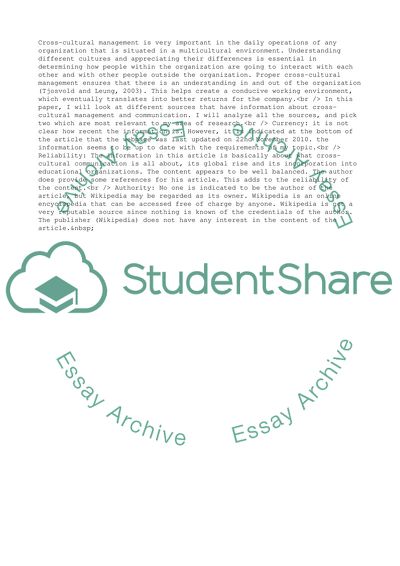Cite this document
(Cross Cultural Management Assignment Example | Topics and Well Written Essays - 2079 words, n.d.)
Cross Cultural Management Assignment Example | Topics and Well Written Essays - 2079 words. Retrieved from https://studentshare.org/management/1573192-practice-report
Cross Cultural Management Assignment Example | Topics and Well Written Essays - 2079 words. Retrieved from https://studentshare.org/management/1573192-practice-report
(Cross Cultural Management Assignment Example | Topics and Well Written Essays - 2079 Words)
Cross Cultural Management Assignment Example | Topics and Well Written Essays - 2079 Words. https://studentshare.org/management/1573192-practice-report.
Cross Cultural Management Assignment Example | Topics and Well Written Essays - 2079 Words. https://studentshare.org/management/1573192-practice-report.
“Cross Cultural Management Assignment Example | Topics and Well Written Essays - 2079 Words”, n.d. https://studentshare.org/management/1573192-practice-report.


